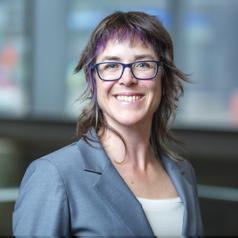
Paula Bath
Ph.D. Candidate, Sociology and Anthropology, Concordia University
PhD Candidate in Sociology and Anthropology and 2023-24 Public Scholar / SSHRC Canadian Graduate Scholarship Award Holder (Doctoral) / Research Communications Policy & Experience / Director in Sign Language accessibility and telecommunications.
Less ![]()
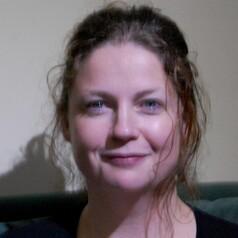
Paula Corcoran
Senior Lecturer in Health Psychology, City, University of London
I completed my PhD in 2009. I am also a fellow of the Higher Education Authority. I previously worked in the third sector with homeless persons who have drug and alcohol addictions. I teach health psychology, qualitative research methods and addiction.
Less ![]()
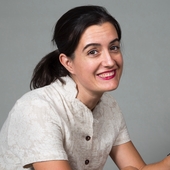
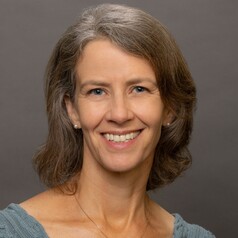
Paula Fomby
Professor of Sociology and Research Associate in Population Studies, University of Pennsylvania
I conduct research on family demography from a sociological perspective. My work focuses mostly on the causes of family change and its consequences for children in the United States.
Less ![]()
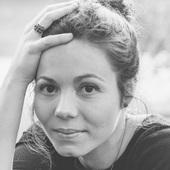
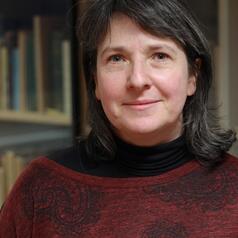
Paula Hearsum
Principal Lecturer, School of Art and Media, University of Brighton, University of Brighton
Dr Paula Hearsum lectures in Media at the University of Brighton specialising in Popular Music and Journalism across five undergraduate courses: Media Studies BA (Hons), Music Business and Media BA (Hons), Media, Industry and Innovation BA (Hons), Environment and Media Studies BA (Hons) and Media Production BA(Hons) as well as on three postgraduate degrees: Digital Media, Culture and Society MA, Journalism MA and Sport Journalism MA. She is currently the Learning and Teaching Lead for the School of Art and Media.
As a practitioner and academic, Paula believes that media is something you do as well as think about. Her professional background includes a decade as a music journalist before moving into new media as an Editor and consultant appearing on TV, radio as well as many public speaking engagements. Having launched the UK's first and leading student community website, studentUK, in 1997, Hearsum went on to work for a variety of companies including BBC, Channel 4 and the Department Children, Schools & Families. She was a regular judge for the Guardian Student Media Awards and has run workshops on digital journalism for industry professionals. She has written for many magazines and websites on music as well having worked as an editorial web consultant specialising in education.
Hearsum’s journalistic career includes contributions in the following magazines and newspapers: Vox (Staff Writer), NME, The Times, Red, Everywoman (Music Editor), 1015 (The Times supplement), Sounds, The Mac, Home Entertainment, Enjoy, Leeds Other Paper, Practical Parenting and Juno. She has also published several pieces on parenting.
Paula has a degree in Communication & Cultural Studies with Public Media BA (Hons) Trinity & All Saints, 1989 and Women’s Studies (MA) University of Westminster, 1995. She completed her PhD at the University of Brighton in 2016 focusing on the media representation of the deaths of popular musicians. She is a member of MeCCSA (Media, Communication & Cultural Association) and the International Association for the Study of Popular Music.
Paula has previously lectured at London Metropolitan University, Trinity & All Saints, Leeds, University of Westminster and the University of East London. She maintains and very much enjoys a relationship between academia and media practice through both streams of work and is continually inspired by her colleagues and students through her work at the University of Brighton.
Paula Hearsum’s main focus of research is the examination of the mediation of popular musician’s deaths as way to consider dominant social discourses and narratives. The legal, professional and ethical rules around writing about death are often broken when discussing popular musicians as a group and Paula’s research uses critical discourse analysis to demonstrate in what ways media institutions and the journalists as cultural intermediaries perform the roles of both reflecting and shaping social values.
Her practitioner background as a music journalist combines with her academic disciplines in Media Studies, Popular Music Studies and Journalism Studies within this body of work, which includes published research in intersecting areas within this work such as obituary journalism, gender debates and Death studies.
Less ![]()
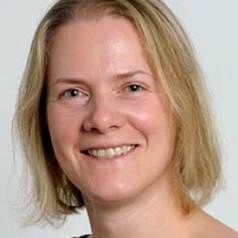
Paula Holland
Senior Lecturer in Public Health, Lancaster University
My research focusses on: the relationship between work, disability and health; barriers to disabled people’s employment; and interventions to support disabled workers’ employment, including workplace adjustments. Disabled people have lower employment rates than non-disabled people, and are also more likely to be employed in insecure, lower-skilled and low-paid work. These employment inequities have severe consequences for their financial independence, health and wellbeing, and provide a mechanism for producing and exacerbating social inequalities in health.
I am lead investigator on a study funded by the Nuffield Foundation exploring disabled people's experiences of remote and hybrid working and how employers can design remote/hybrid working to be inclusive of their need and preferences: https://wp.lancs.ac.uk/inclusive-working/
Less ![]()
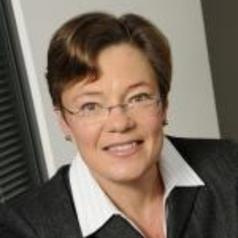
Paula Jarzabkowski
Paula Jarzabkowski is a Professor of Strategic Management. Her research focuses on strategy-as-practice in complex contexts, such as regulated firms, third sector organizations and financial services, particularly insurance and reinsurance. Her research in this regard has been foundational in the establishment of the field of strategy-as-practice. She is experienced in qualitative methods, having used a range of research designs, including cross-sectional and longitudinal case studies, and drawing on multiple qualitative data sources including interviews, observation, audio and video ethnographic techniques and archival sources to study private and public sector organizations. In particular, this includes the first global ethnography – a programme of research that included the use of video methods - of the reinsurance industry.
Professor Jarzabkowski’s career has been marked by a series of prestigious fellowships that have enabled her to conduct detailed ethnographic studies of business problems. For example, in 2006-2007, funded by an AIM Ghoshal Fellowship, she conducted an audio-ethnographic longitudinal study of the paradoxical tensions involved in implementing a major strategic shift in a regulated telecommunications firm. From 2009-2012, she held the inaugural Insurance Intellectual Capital Initiative (IICI) fellowship, under which she conducted a 3-year audio and video ethnography of the global reinsurance market, which extended her skills from organisational to industry-level ethnography. From 2012-2014 she held an EC Marie Curie International Outgoing Fellowship at Cornell University.
Her work has appeared in a number of leading journals including Academy of Management Journal, Organization Science, Strategic Management Journal, Journal of Management Studies and Organization Studies and in 2005, she published the first book on strategy-as-practice, Strategy as Practice: An Activity-Based Approach (Sage).
In addition, her engagement with industry has made Professor Jarzabkowski skilled in turning academic research into applied outputs, including collaborating with industry in developing research questions, and presenting here research at industry venues and conferences. The relevance of her work was recognised recently with the prestigious 2013 ESRC Outstanding Impact on Business Award.
Professor Jarzabkowski has just released a new book with Oxford University Press, entitled 'Making a Market for Acts of God: The Practice of Risk-Trading in the Global Reinsurance Industry' based on her 3-year ethnographic study of the industry.
Less ![]()
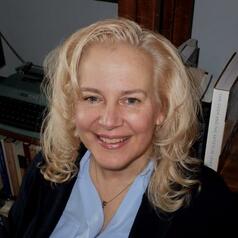
Paula Maurutto
Associate Professor of Sociology, University of Toronto
Paula Maurutto is an Associate Professor in the Department of Sociology and holds a cross-appointment at the Centre of Criminology and Sociolegal Studies at the University of Toronto. Her research interests are in the fields of law, criminal justice and punishment, as well as security and surveillance. In the area of preventive security and surveillance, her work questions the extent to which counter-terrorism practices and border controls erode fundamental aspects of justice and reproduce racial hierarchies. She has worked extensively on the use of risk assessments and criminal records in the field of punishment and penal management.
Less ![]()

Paula Mayer
Associate Research Scientist, Nursing, Saskatchewan Polytechnic
I have been a Faculty member at Saskatchewan Polytechnic in the Nursing program for the past 9 years. I completed my BN degree with distinction July 2022 after 30 years as a diploma RN in many domains of nursing. I consider myself a baby researcher, but I am part of a fantastic research team studying older adults and my skills are improving in this area all the time.
Less ![]()
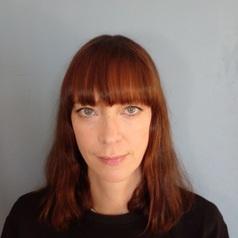
Paula Murphy
Assistant Professor, School of English, Dublin City University
I am an assistant Professor in the School of English in Dublin City University, specializing in popular film, especially film and technology, and Irish literature and film, with an emphasis on new and marginal voices.
I have just published a book on representations of artificial intelligence in film, AI in the Movies, with Edinburgh University Press, and a number of related journal articles:
- ‘"You Feel Real to Me, Samantha": The Matter of Technology in Spike Jonze's Her’. In Technoculture: An Online Journal of Technology in Society, Vol 7, 2018.
- ‘“Through the Looking Glass”: Bodies of Data in Alex Garland’s Ex-Machina’. Film International, 17.3: 79-85.
-‘‘Writers and Writers of Writers: Creativity and Authorship in the First AI Novel’. Kritikos: An International and Interdisciplinary Journal of Postmodern Cultural Sound, Text and Image. Vol 19, Fall/ Winter, 2023.
Less ![]()
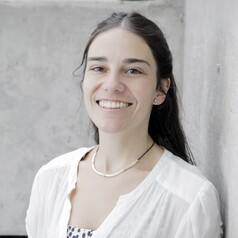
Paula Contesse Carvacho
Directora del Máster en Atención Temprana, Universidad Nebrija
Doctora en Ciencias de la Educación por la Universidad Autónoma de Barcelona. Máster en Investigación en Educación (UAB) y Máster en Psicopedagogía en la Universidad del Desarrollo de Chile. Formación de grado de Profesora de Educación Primaria y Diferencial con especialidad en Discapacidad Intelectual.
Áreas de investigación y desarrollo académico han sido siempre la diversidad, la inclusión educativa y la discapacidad intelectual tanto en la formación de futuros docentes como en equipos multidisciplinares en escuelas que promueven la inclusión educativa. A lo largo de mi trayectoria laboral me he desempeñado como profesora jefe tanto en escuelas especiales como en colegios regulares en niveles de educación primaria y en proyectos de integración.
Less ![]()
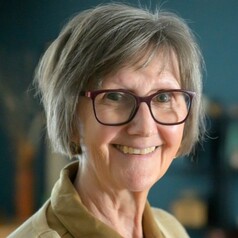
Paula M. Carbone
Professor of Clinical Education, University of Southern California
Paula M. Carbone is a professor of clinical education at USC Rossier. Her courses include education for sustainable futures, examining the role of public education in today’s society as a vehicle for the betterment of humanity’s shared future.
Less ![]()
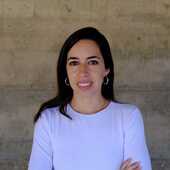
Paula Pérez González-Anguiano
Assistant researcher BETA Technological Center, Universitat de Vic – Universitat Central de Catalunya
Less ![]()
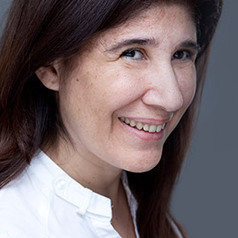
Paulina Arroyo Pardo
Professeure titulaire ESG, Université du Québec à Montréal (UQAM)
Domaines d'expertise :
- Comptabilité de management
- Comptabilité environnementale
- Développement durable
- Gestion de crise
- Organismes de bienfaisance
- Théories des organisations
- Whistleblowing
Less ![]()

Paulina Bleah
Nurse Practitioner, PhD Nursing Student, Queen's University, Ontario
I am a 4th year PhD nursing student at Queen’s University, School of Nursing. I completed my undergraduate nursing education and my master in nursing/nurse practitioner at Toronto Metropolitan University (formerly Ryerson University). My PhD research is focused on understanding what it is like to live with diabetes in Liberia. I am particularly interested in how social, economic, political, and historical factors/structures influence the experience of living with diabetes in Liberia. My research interest is fuelled by my experience with global health outreach in Liberia. I am learning how I can use my voice and platform to advocate for policies and programs that support equity-deserving persons living with chronic illnesses.
Less ![]()
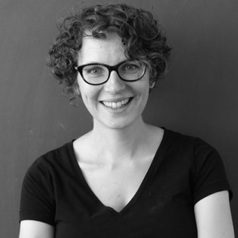
Paulina Sliwa
Professor of Philosophy, Universität Wien
I'm professor of moral and political philosophy at the University of Vienna.
I received my PhD from MIT in 2012. Before that I read Physics & Philosophy at Balliol College in Oxford.
Less ![]()
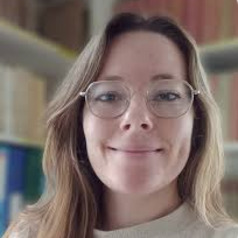
Pauline Costes
PhD Candidate at MECADEV (Centre National de la Recherche Scientifique/Muséum national d'Histoire naturelle), Sorbonne Université
My thesis aims to quantify and explain the variability of elephant trunk behaviour using ethology and biomechanics. In other words, whether at individual, population or species level, can the performance of the trunk, in terms of manipulation, be explained by its behaviour, shape, trajectory, speed or strength? To answer this question, interdisciplinary procedures are used to acquire and analyse data. This project will enrich the discussion around fundamental biological and ecological questions. At the end of the project, thanks to a transfer of knowledge to bio-inspired robotics, all this new data will help to design a prototype prehensile trunk capable of reproducing the movement of the elephant trunk.
Less ![]()
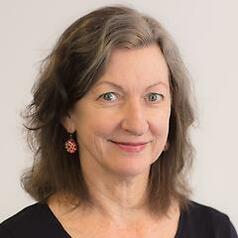
Pauline Jones1
Associate Professor in Language in Education, University of Wollongong
Associate Professor Pauline Jones is a researcher and teacher educator in the School of Education at the University of Wollongong. Her research interests are educational linguistics/semiotics, advanced literacy development and disciplinary dialogue.
Her current research focusses on contemporary literacy skills in the disciplines of Science, English and History and how these develop across the years of schooling. She has recently led the Transforming Literacy Outcomes (TRANSLIT) project, a local study of literacy development from preschool to junior secondary. She has also investigated the use of multimodal texts in tertiary science classrooms. Her doctoral students work in a range of areas including multimodality, online learning, classroom discourse studies, literacy development and curriculum in schools and tertiary settings and teacher professional development.
In 2022 she is co-convenor (with Dr Shoshana Dreyfus) of the Interdisciplinary Discourse Analysis in Education, the Arts and Social Sciences (IDEAS) research group. IDEAS is focussed on the application of theories of linguistics and semiotics to a broad range of social issues including climate change and sustainability. Its membership comprises an intergenerational group of scholars from across UOW and beyond who meet fortnightly in a program of seminars, workshops, and student presentations.
Less ![]()
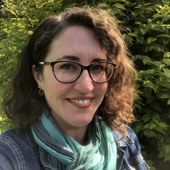
Pauline McCallion
Senior Business Editor
Pauline has been a journalist for 18 years, mostly writing about business and finance. After covering the impact of the global financial crisis on UK consumers, she moved to the US in 2008 to write about financial regulation, risk management and energy trading. She is now based in Northern Ireland and joins The Conversation UK after a decade as a freelance writer and editor.
Less ![]()
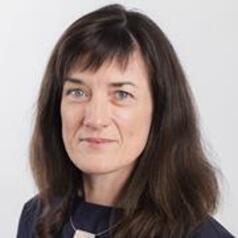
Pauline McGuirk
Senior Professor of Urban Geography, University of Wollongong
I have a BA (Hons) in Geography/History, a Dip. Ed and PhD (1993) in Urban Geography from Dublin University. I am a fellow of the Academic of Social Sciences Australia (awarded 2016). I have been Director of the Australian Centre for Culture, Environment, Society and Space at the University of Wollongong since 2017, having previously been DIrector of the Centre for Urban and Regional Studies at the University of Newcastle, NSW (2006-2016). My research focusses on the changing geographies, practices and politics of urban governance, with a current focus on urban governance innovation. I am a former editor of Progress in Human Geography: an international flagship journal in the discipline.
Less ![]()
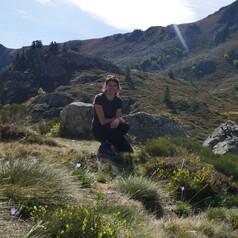
Pauline Raimondeau
Postdoctoral Associate in Ecology & Evolutionary Biology, Yale University
Pauline seeks to understand the factors influencing plant evolution and adaptation. She is now working on the evolution of drought tolerance in wild populations of an American widespread flower.
Less ![]()
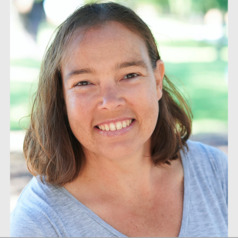
Pauline Roberts
Senior Lecturer in the School of Education, Edith Cowan University
Pauline has a focus on reflection, ePortfolios and technology but also teaches in the leadership area, with a focus on advocacy and workforce issues impacting on the early years.
She has also engaged with research examining the impact of NAPLAN on children’s wellbeing and was honoured to be included in the consortium reviewing the Australian Approved Learning Frameworks.
Less ![]()
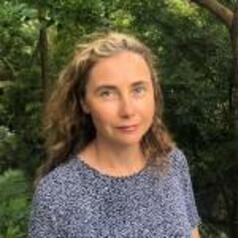
Pauline Treble
Research Scientist, Environment Research Group, Australian Nuclear Science and Technology Organisation
Dr Pauline Treble is a research scientist within the Environment research group at ANSTO, where she works with a multi-disciplinary team of atmospheric scientists, hydrologists, groundwater and paleoenvironmental scientists.
Pauline specialises in constructing stalagmite-based paleoclimate and palaeofire records using ANSTO’s Isotope Tracng in Natural Systems and Synchrotron facilities. She has established cave monitoring programs that use caves as a natural laboratory to understand surface to cave drip water processes, develop novel palaeoenvironmental proxies and to track rainfall recharge to groundwater under a changing climate. She supervises Honours and PhD level as well as early career researchers on these projects.
Less ![]()
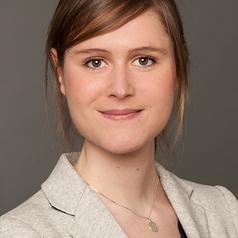
Pauline C. Reinecke
Assistant researcher, University of Hamburg
Pauline Charlotte Reinecke is a doctoral researcher at Hamburg University of Technology. Her research focuses on grand societal challenges related to emerging technologies such as AI and Circular Economy, controversies in discourses around technology development, and processes of technology regulation. Her work has been published in leading management journals such as Journal of Information Technology, Journal of Business Economics and International Journal of Physical Distribution & Logistics Management.
Less ![]()
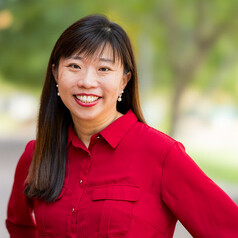
Pauline Hope Cheong
President's Professor of Human Communication and Communication Technologies, Arizona State University
Pauline Cheong studies the complex interactions between communication technologies and different cultural communities around the world. She believes that invisible yet powerful cultural and communicative forces make up how we interact and organize with digital media, to impact participation and power in society.
Her recent projects related to changing knowledge and authority practices examine the socio-cultural implications of Big Data, including user skills, perceptions and practices of privacy and security within the Internet of Things. She is also examining how non-profit and spiritual organizations use Artificial Intelligence and digital platforms to interact and form both local and global communities.
In the area of strategic communication, she has investigated how digital and social media networks facilitate the spread of narratives and memes by extremist groups, cyber-vigilantes and rumor-mongers. Her personal interests in innovative pedagogy & mentoring have also led to research projects examining how underserved and youth populations experience multiple digital divides in the learning process.
Cheong has published more than 100 articles and books and has received research awards by the National Communication Association, Western Communication Association, and the International Communication Association. She is often invited to teach and speak in Asia, North America and Europe.
Less ![]()
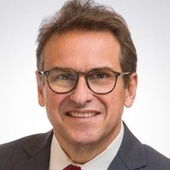
Paulo Carvão
Senior Fellow, Mossavar-Rahmani Center for Business and Government, Harvard Kennedy School
Less ![]()
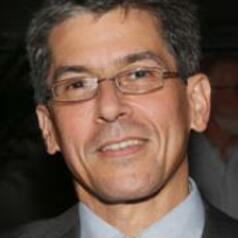
Paulo Vasconcelos
Professor, The University of Queensland
Associate Professor Paulo Vasconcelos' research is in the fields of: Low-T Geochemistry, Economic Geology and 40Ar/39Ar Geochronology. He received his PhD from The University of California (Berkeley).
Less ![]()
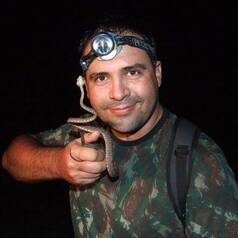
Paulo Sérgio Bernarde
Professor titular, Campus Floresta, Universidade Federal do Acre (UFAC)
Possui graduação em Ciências Biológicas pela Universidade Estadual de Londrina (1996), mestrado em Zoologia pela Universidade Federal do Paraná (1999) e doutorado em Ciências Biológicas (Zoologia) pela Universidade Estadual Paulista Júlio de Mesquita Filho (2004).
Atualmente é Professor Titular da Universidade Federal do Acre (Campus Floresta - Cruzeiro do Sul - AC) e docente permanente credenciado nos cursos de Mestrado em em Ciências da Saúde na Amazônia Ocidental da UFAC (Rio Branco - AC) e de Doutorado na Rede de Biodiversidade e Biotecnologia da Amazônia Legal - REDE BIONORTE.
Tem experiência nas áreas de Ecologia e Zoologia com ênfase em herpetologia (anuros, lagartos e serpentes), Etnoecologia e em Animais de Interesse na Saúde.
Less ![]()
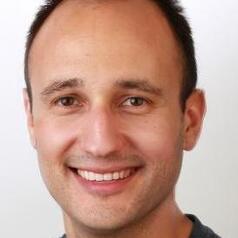
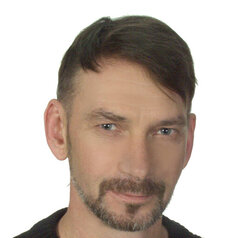
Pavlo Shydlovskyi
Associate Professor of Archaeology, Taras Shevchenko National University of Kyiv
I, Pavlo Shydlovskyi, born in 1974, am a graduate of the Historical Faculty of Taras Shevchenko National University of Kyiv, specializing in History and Archaeology (1997). I have worked at the Institute of Archaeology of the National Academy of Sciences of Ukraine, the Kyiv Regional Center for the Preservation of Monuments of History, Archaeology, and Art, and the Scientific Research Institute of Monument Protection Studies under the Ministry of Culture of Ukraine. Since 2002, I have been teaching courses in prehistoric archaeology and the preservation of archaeological heritage at the Department of Archaeology and Museology of Taras Shevchenko National University of Kyiv. In 2008, I defended my dissertation titled "Cultural Adaptation of Early Hunters in Eastern Europe (18-10 thousand years ago)" to obtain the academic degree of Candidate of Historical Sciences in the specialty of World History. In 2014, I was awarded the academic title of Associate Professor. I lead the expedition of the Department, focusing on the study of prehistoric sites in the Middle Dnieper region. I am the founder of the NGO Center for Paleoethnological Research and the scientific editor of VITA ANTIQUA publishing. Since the beginning of the large-scale aggression by the Russian Federation in February 2022, I participated in the Territorial Defense Service of Kaniv District (March-May 2022) and became an employee of the Ukrainian State Institute for Cultural Heritage, concurrently, to implement the monitoring of archaeological sites during the war in Ukraine. Since January 2024, I have been elected as the Head of the Department of Archaeology and Museum Studies at Taras Shevchenko National University of Kyiv through a competitive selection process.
Less ![]()
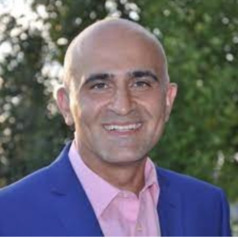
Payam Dehghani
Associate Professor, Cardiology, University of Saskatchewan
Payam Dehghani is a clinical co-director of the Prairie Vascular Research Inc (PVRI), and an Associate Professor at the University of Saskatchewan. He is an interventional cardiologist at the Regina Qu’Appelle Health Region and director of the Adults with Structural Heart Disease Clinic.
Less ![]()
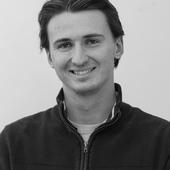
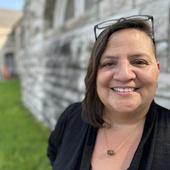
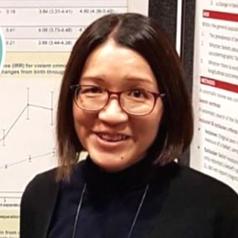
Pearl Mok
Research Fellow, Centre for Pharmacoepidemiology and Drug Safety, University of Manchester
I work with large-scale electronic health databases to investigate topics in epidemiology, using data from the Clinical Practice Research Datalink (CPRD) and ResearchOne. My current research focuses on four areas: mental health of young people, adverse outcomes associated with the use of antipsychotics in people with dementia, the use of prescribing safety indicators to reduce hazardous prescribing, and a new study on post-discharge care after acute kidney injury.
Before joining the Centre for Pharmacoepidemiology and Drug Safety at the University of Manchester, I was based at the Centre for Mental Health and Safety at the University where much of my research was on the epidemiology of self-harm, suicide, and violence. This included working on a 5-year programme investigating the risk factors for suicidal behaviour and violence in young people, using data from the Danish national registers.
Less ![]()
- Market Data





















